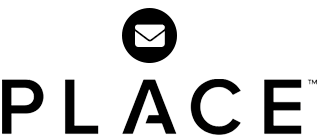It’s no secret that finances play a massive role in life, influencing everything from relationships to careers, and even to physical and mental health. But, when you get your money mindset in order and make healthy financial habits a priority, you can find financial freedom.
Financial independence looks different for everyone, as we all envision a desired lifestyle differently. Ben Kinney, the co-founder of PLACE, defines it as, “The ability to do what I want, when I want, and with whom I want.”
As you begin your wealth-building journey, consider the common myths you’ll need to dispel and healthy financial habits you’ll need to implement.
Charting a path toward financial freedom
Wealth building won’t fall into your lap even if there’s an inheritance or life insurance policy in your future. That’s why 70% of lottery winners lose all of their money within five years. To put yourself on a path that prioritizes financial planning and savings goals, you must first address your relationship with money.
Myth #1: My bills are covered, and I have a comfortable life, so I’m good money-wise.
Reality: You need to make more money.
You might manage your credit card debt, living expenses, student loans, and monthly income really well, but life has a way of throwing us unexpected expenses. Financial security isn’t guaranteed, and the best way to strengthen your financial future is to budget, actively gauge spending habits, and always work toward higher earnings so you can be prepared to reach life goals and take advantage of opportunities.
Here are key reasons why this is important:
For emergencies: The unexpected expense of you or a loved one having poor health. A natural disaster hits. You get into a big accident. We all assume that everything we have and everything we’re doing is going to continue as is, but that’s not a realistic worldview. Things change, and they change quickly. And when they do, you need to be prepared.
For opportunities: According to Warren Buffet, the greatest distributions of wealth happen in down markets. Chaos creates opportunities. Will you have the opportunity to be in the game when the next financial crisis hits? Do you have the capital to take advantage of a buying opportunity when the stock or real estate market is down? Deploying capital during uncertain times creates a path to financial success.
For leverage: We’ve all come across situations where we didn’t have the money to pay someone to fix an issue with our car or fix the water leaking from our kitchen sink. Having zero money for unexpected expenses means taking time away from your income-producing activities. Exchanging time for money isn’t always the answer. Sometimes it makes sense to pay an expert to fix a problem, so you can get your time back.
For legacy: Having multiple sources of income gives you the ability to create generational wealth for you and your family. It also provides an opportunity for you to give more by supporting your community or humanitarian causes important to you. For memories and experiences: At the end of the day, making memories and sharing experiences with your loved ones is the most important part of life. And those experiences, more often than not, have a financial component attached.
Myth #2: There are shortcuts to wealth building.
Reality: Financial freedom is a long-term strategy.
There are no shortcuts to success in wealth building. It’s a gradual process that gains momentum over time. Impatience, giving in to unnecessary expenses, and lacking financial interest might slow you down. Commit to the long-term game if you’re determined to transform your financial situation. Here are important questions to ask steps on your wealth-building journey.
Reality check: Where are you on your financial journey? How much high-interest debt or student debt do you have? How much work income, passive income, rental income? What’s the value of your assets and investment accounts, and what is your net worth?
Retirement check: Does your investment portfolio and financial plan have you on track to retire at your desired lifestyle? Are you contributing enough to your retirement savings or spending your extra money on things you don’t really need? Are you clear on how long your retirement funds will last you during your golden years?
Saving up: What can you do now to reduce expenses in your monthly budget to live on less and save more money? Does your investment strategy have multiple income streams?
Student of wealth: Are you being proactive on your personal finance journey by educating yourself on wealth-building concepts, real estate investing, and saving models that can help you grow wealthy? Win Make Give’s Wealth Series 2.0 podcast is a fantastic resource, and PLACE Partners have even more exclusive guidance at their fingertips.
Increasing income: Are you regularly asking for a raise? Leveraging your time and skill sets to increase your hourly rate? Selling items you no longer use? Starting or investing in a business? Making investments that pay dividends?
Reduce your taxes: Do you know how to pay fewer taxes legally? Are you learning about the tax code and being strategic in reducing your taxes?
Invest wisely: Are you taking advantage of the massive returns compound interest provides? Are you being strategic with asset allocation and retirement planning?
Myth #3: Achieving financial freedom is too complicated.
Reality: Wealth-building is not difficult if you educate yourself.
Your financial behavior reflects your relationship with money. It’s not difficult to educate yourself, but it does take time. We suggest starting your wealth-building journey with Win Make Give’s Wealth Series 2.0. The free series is a treasure trove of information, with seventeen podcast episodes and accompanying workbooks, including free tools and resources. Throughout the series, you’ll learn basic financial health fundamentals, including more advanced wealth-building strategies. Once you complete the series, you’ll have action steps to reduce your expenses, maximize your income, save money, and better understand your investment strategy and retirement plan.
How to achieve financial freedom
Financial freedom is an incredibly important goal for so many of us. It means having enough money saved up to be able to pursue any career we want without worrying about the financial burden. But unfortunately, too often, people find themselves falling short of that ultimate goal. Things like overspending or unexpected major crises can further increase debt and strain finances. Without a strong financial nest egg, it can be difficult for people who are struggling with their budget to get ahead and reach financial freedom.
It is possible to achieve this important milestone with dedication and perseverance. Building effective habits such as regularly budgeting, eliminating unnecessary expenses, setting a timeline for when you would like to attain financial freedom, and automating your savings deposits can all help foster a healthier relationship with your finances. Planning carefully and taking proactive steps towards responsible spending will ultimately lead to greater financial security.
4 benefits of financial freedom
Financial freedom comes with many benefits, which we can narrow down into four categories:
- Leverage: As you build wealth, you can delegate limitlessly and reclaim precious time back to do what you want, when you want, and with whom you want.
- Legacy: Leave a lasting impact by creating generational wealth and supporting causes dear to your heart.
- Security: Life is unpredictable, but with wealth, you can better handle emergencies, health issues, and unforeseen accidents.
- Opportunity: The economy fluctuates, offering opportunities for those with capital. Building wealth enables you to take advantage of lucrative investment opportunities.
6 routines that kick-start wealth building
Now that you’ve set your sights on the path to building wealth, it’s time to put your plans into action. Incorporate these six wealth-building routines into your financial plan. Each one is crucial for strengthening your financial foundation while inching closer to your goals.
- Savings: Trim expenses strategically and live within your means, allowing you to pay off debts and save money.
- Education: Learn all you can about financial planning and use models that help you grow your nest egg automatically and effectively. To begin, here are some of our recommended wealth-building books.
- Income: Whether you work for a company or yourself, there are always ways to increase your income. In addition to earned income, implement strategies that create a diversified portfolio with passive income.
- Tax Efficiency: Learn legal ways to pay less taxes from experts like CPA and Rich Dad Advisor® Tom Wheelwright, as he discusses in Wealth Series 2.0.
- Investments: Learn about investing strategies (stocks, bonds, retirement accounts, real estate, energy, etc.) and make wise choices. Don’t forget about taking advantage of compound interest and put it to work early so you can reap significant returns.
- Financial Check-Ins: Track your net worth by reviewing your income, expenses, savings, liabilities, and assets every month.
Wealth isn’t just about accumulating money; it’s about the security, freedom, and opportunities it provides. Begin this exciting journey with confidence, determination, and the belief that true wealth is within your reach. With the right mindset and actions, you can pave the way for a prosperous future, leaving a legacy of financial freedom for yourself and generations to come.
At PLACE, we believe the success of our business will be determined by our ability to maintain our GROWTH. Each letter in this word stands for one of our values: G – Grit, R – Results, O – Only Leaders, W – Wealth, T – Teamwork, H- Humility. If you want to prosper personally and financially, fill out this form to tell us more about your real estate business.
Disclaimer: You should not use our advice to make financial decisions. We highly recommend you seek professional advice from someone authorized to provide investment and retirement advice.





